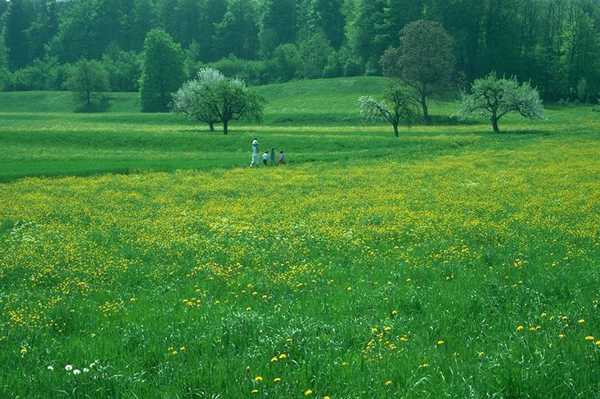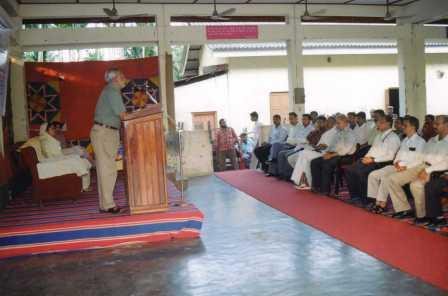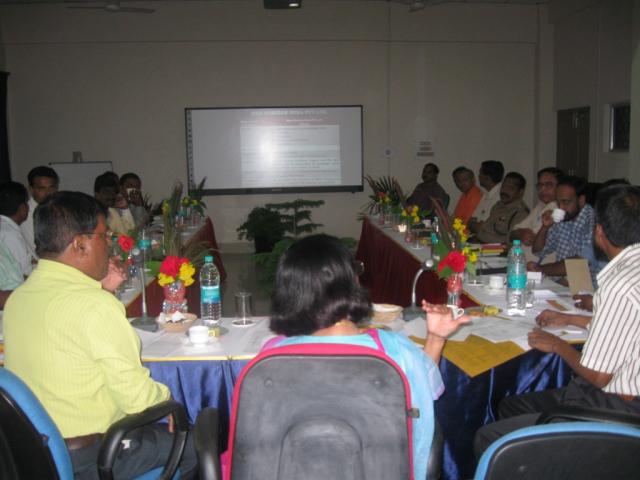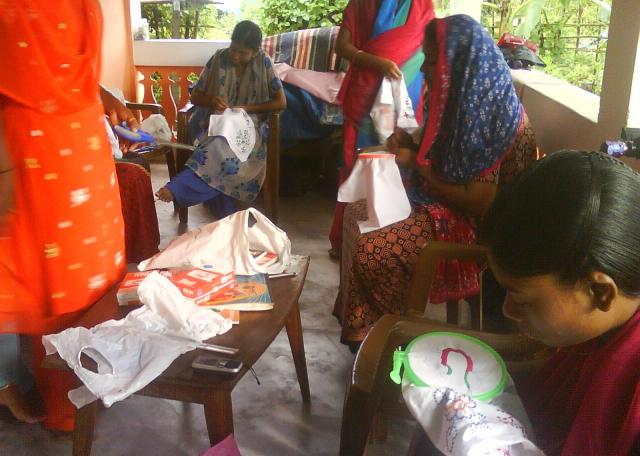
ARPAN
(Association of Rural People of Andaman & Nicobar Islands)
An introduction
When viewed in the developmental context, rural areas have always lacked behind in matters of delivery of services such as education, health, drinking water, sanitation, public distribution, transportation, power supply, infrastructure, etc. The difference in delivery of services in rural and urban areas to some extent can be attributed to the fact that both of these economies are different. The rural economy is largely agriculture based and relatively simple whereas the urban economy is highly diversified and complex, even then dismal performance of delivery of rural services is a matter of serious concern.
While looking at the reasons of shortcomings of various
 
attempts made by the government through its institutions / departments to deliver quality services, it would be equally important to understand the village dynamics how the village community looks at its development, what priorities it gives for the development of the village and betterment of its people. One would not be surprised to note that village people, by and large, accord priorities to such activities that are mainly related to connectivity of the village with an approach road, creation of water bodies to provide irrigation to the fields, availability of drinking' water, access to livelihood opportunities. In the process of selecting the essentials, the priorities for education, health, sanitation, and environment are given less preference. Thus, these services need to be taken with the village immediate requirements so that village environment could be improved.
ARPAN has been set up by a team of visionaries, with a variety of innovative ideas to build and develop these ideas and implement at the grass root levels. Some very interesting initiatives have been undertaken and each of these steps has strengthened the resolve to work united for the betterment of the rural population. The team of ARPAN feels that partnership and collaboration are important strategies for development and upliftment of the poor and the downtrodden. A lot remains to be done at the grass root levels. The vision of ARPAN holds good today even though it was visualized and conceived 4 years back. ARPAN despite its interesting format and ideas still operated at the margins.
 
One of the successes of ARPAN has been its ability to interface with Government and Non-Governmental organization with ease and is proud to say that we have been successful in maintaining the faith in both sectors. We have to be able to now also respond effectively to the demands and faith that have been placed on us.
In building the ARPAN's agenda, one of the most crucial aspect to consider was the need for fund to meet the various needs of the organization. I am happy to say that each member of the society contributed wholeheartedly and responded to the needs of the organization with promptness. We will hope to broad base this support and hope also to increase the magnitude of work over the next few years.
As a strategy ARPAN has continued to work carefully identified smaller voluntary groups. Our response from this group has been an important motivation to go on. ARPAN would like to see a large number of effective development partnerships develop between the Government and the voluntary organizations and also the private sector in each district of the Andaman and Nicobar Islands. Together with the network and voluntary organizational structure in the Union Territory, ARPAN has initiated discussion on self regulation and organizational discipline with local NGOs and Self Help Groups.
ARPAN has been instrumental in bringing various Government officials to the grass root levels to have a better understanding of the problems of the rural people. We hope to strengthen these efforts and invite the Local Administration to take advantage of ARPAN’s understanding and experience in making this partnership process more effective and meaningful and directly beneficial to the poor and the downtrodden for whom we are working.
|